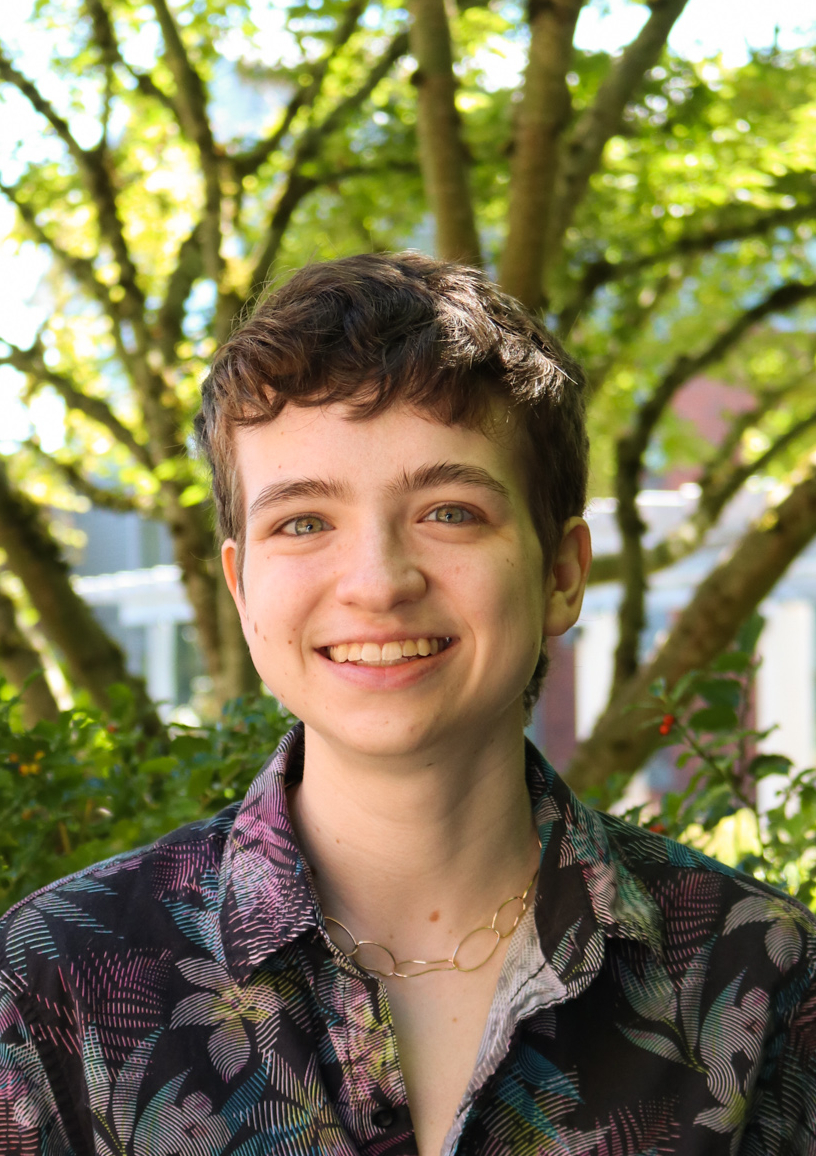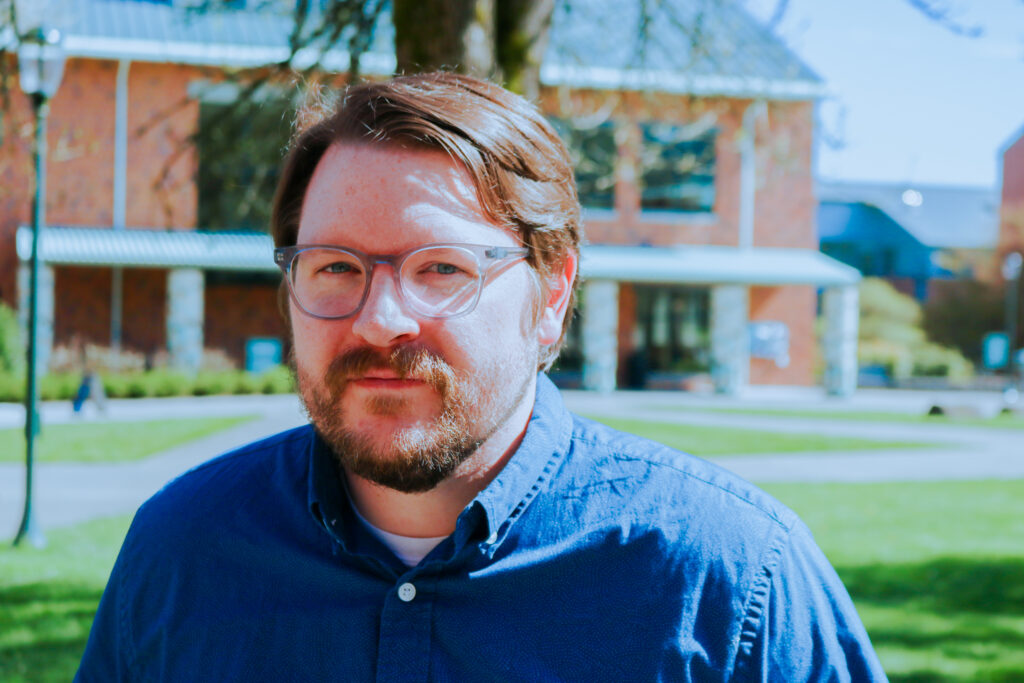Completing a doctoral thesis takes years of dedicated research, and can result in dissertations containing around 80,000 words. Due to its complexity, how does one convey a thesis’s complex idea to people who have no knowledge in the field? Participants in WSU’s Three Minute Thesis contest might have an idea.
The Three Minute Thesis event is a competition held annually by WSU’s Office of Research and Graduate Education, challenging doctoral students to present their research to an audience in three minutes or less. WSU students compete against peers on their own campus, and winners move on to represent their home campus during a system-wide contest in Pullman. Students that effectively articulate their thesis promptly have a chance to win travel grants up to $3000 and attend a research conference of their choice.
The winner of WSU Vancouver’s competition was Coty Jasper, a neuroscience doctoral student. Jasper’s research regards how hair cells interact with estrogen to allow for sound detection in a species of toadfish called the plainfin midshipman.
While this seems like a difficult topic to cover in three minutes, Jasper was able to captivate his audience by telling a story. When approaching this challenge, Jasper had to focus on the ideas that were essential to his research.
“What I’ve found is that the real art of presenting isn’t knowing what to talk about. It’s knowing what not to talk about,” Jasper said. “So from this aspect, with the Three Minute Thesis, you have to ask yourself – what’s the skeleton of my thesis? What are the core elements that I need to talk about? How can I talk about them in a non-technical way?”
Jasper explained it was difficult to cut out the parts of his research he found interesting, but were too complex to understand in such a short time frame. After diving into research for so long, it can be tough for researchers to see the big picture of why their thesis is important.
Richard Snyder, an English doctoral candidate, placed second in WSU Vancouver’s competition. His research focuses on how images from the 16th and 17th centuries should accompany literature from the same period to enhance a student’s curriculum. Snyder said the exercise of shortening his thesis down was a valuable experience for him as a student.
“It helped me distill the core idea down into what the point of it is to that particular audience, a more general or public audience, and that was useful for my defense,” Snyder said.

(Rowan Segura/The VanCougar)
Holly Davis, assistant to the vice chancellor for research and graduate education at WSU Vancouver, said the competition provides a valuable experience for students, allowing them to be seen among their peers from the other WSU campuses.
“Our graduate students need to be seen. Just because we’re in Vancouver doesn’t mean our graduate students are any less important than the ones in Pullman,” Davis said.
WSU Pullman started the Three Minute Thesis competition in 2015, but it was only open to students who studied at the Pullman campus, according to WSU Vancouver’s Vice Chancellor for Research and Graduate Education Christine Portfors. She argued that graduate students from any campus should be able to compete and showcase their research. The following year, the competition was opened to all WSU graduate students, and WSU Vancouver’s representative took home the first place prize.
Portfors explained that presentations for the Three Minute Thesis competition are evaluated on content, comprehension, engagement and communication. It is also essential for students to inform the audience about why the problem they are studying is significant.
“Being able to talk about [the value of] your research is a really important skill,” Portfors said.“So it doesn’t matter if it’s science, history or English. Everybody should be able to talk about what they do and why it’s important in a really short timeframe.”
The Pullman portion of the competition took place on March 24 during a pre-recorded YouTube live stream that can be viewed here. The first place winner was James Asare, from the College of Education. Placing second was Kailie Drumm, from the College of Nursing and third was Mohammad Aghababaei, from the Voiland College of Engineering and Architecture.
“I think it’s a great challenge that, no matter what, makes you better in the end if you try,” Jasper said.

Sawyer is a senior studying anthropology at WSU Vancouver.
